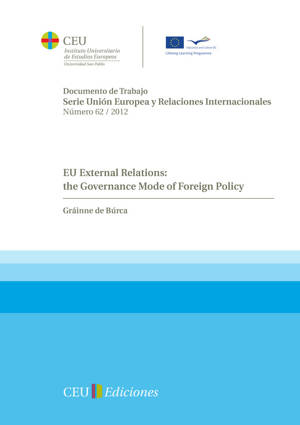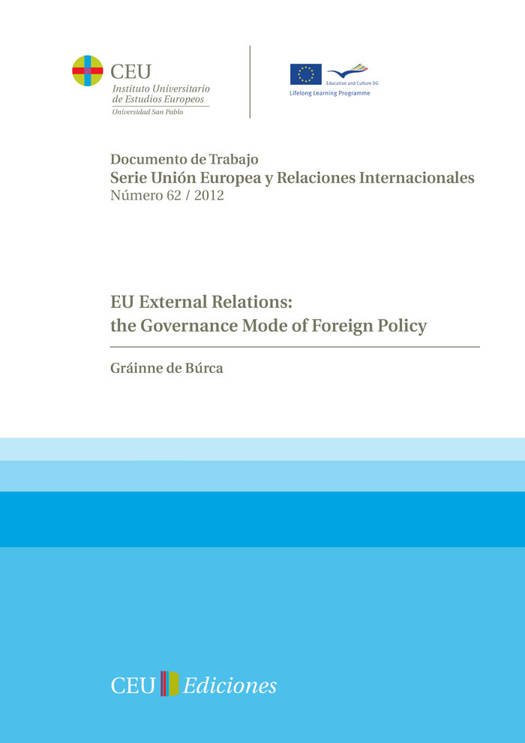
Door een staking bij bpost kan je online bestelling op dit moment iets langer onderweg zijn dan voorzien. Dringend iets nodig? Onze winkels ontvangen jou met open armen!
- Afhalen na 1 uur in een winkel met voorraad
- Gratis thuislevering in België vanaf € 30
- Ruim aanbod met 7 miljoen producten
Door een staking bij bpost kan je online bestelling op dit moment iets langer onderweg zijn dan voorzien. Dringend iets nodig? Onze winkels ontvangen jou met open armen!
- Afhalen na 1 uur in een winkel met voorraad
- Gratis thuislevering in België vanaf € 30
- Ruim aanbod met 7 miljoen producten
Zoeken
€ 6,95
+ 13 punten
Omschrijving
This paper revisits the familiar question of the distinctive nature of EU foreign policy and external relations. It begins from a similar starting point to that from which much of the existing literature on the EU as a normative or civilian power begins, in assuming that there is something fairly distinctive about the way the EU conducts its external relations. But it departs from much of that literature in eschewing any claim that the EU is in some way more virtuous than other international actors, or that it is motivated mainly by values, principles or norms, rather than by its own interests. Rejecting the assumption of a sharp distinction between the EU´s promotion of values and its pursuit of interests, the analysis focuses instead on what I call the EU´s governance mode of foreign policy, namely its tendency to act collectively rather than unilaterally, and to establish and institutionalize stable external governance systems on a wide range of issue areas.
Specificaties
Betrokkenen
- Auteur(s):
- Uitgeverij:
Inhoud
- Aantal bladzijden:
- 40
- Taal:
- Engels
Eigenschappen
- Productcode (EAN):
- 9788415382430
- Verschijningsdatum:
- 26/07/2012
- Uitvoering:
- Paperback
- Afmetingen:
- 205 mm x 295 mm
- Gewicht:
- 147 g

Alleen bij Standaard Boekhandel
+ 13 punten op je klantenkaart van Standaard Boekhandel
Beoordelingen
We publiceren alleen reviews die voldoen aan de voorwaarden voor reviews. Bekijk onze voorwaarden voor reviews.











